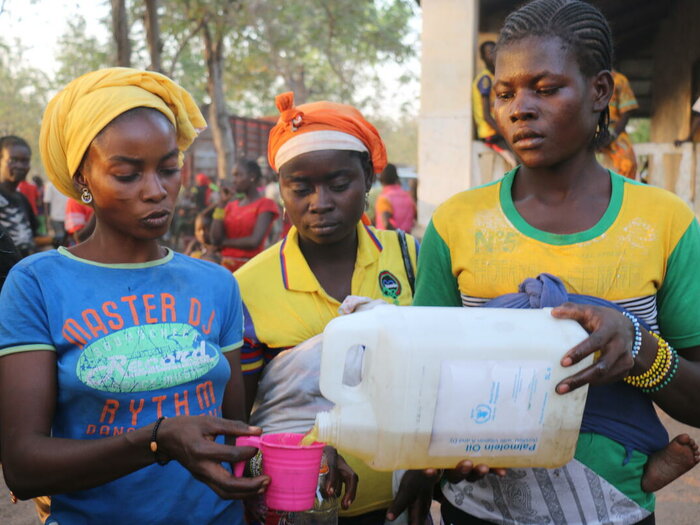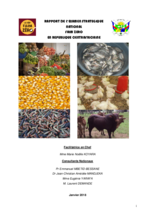Central African Republic
- 79%
- of people live in poverty
- 27%
- of the population is displaced
- 3 million
- require humanitarian assistance
- 45%
- are food insecure
- 4.7 million
- population
The Central African Republic (CAR) ranks second to last in the 2018 Human Development Index, with around 79 percent of the country’s 4.7 million population estimated to be living in poverty. Almost 3 million people residing in CAR require humanitarian assistance. Low productivity, weak markets and high gender inequality are all contributing factors, made worse by recurrent cycles of political crisis and insecurity that hit women in rural communities hardest.
In 2013, a political coup saw intense sectarian violence and caused a 36 percent collapse in GDP. The protracted internal armed conflict has devastated the country since 2014 continuing to force people to flee their homes and causing a severe breakdown in basic social services. Renewed violence since 2017 has led to further displacement with over one million people – one in four citizens - displaced across the country or sheltering in neighbouring countries.
What the World Food Programme is doing in Central African Republic
-
Access to food
-
WFP helps vulnerable communities meet their basic food and nutrition needs by distributing food – including specialized nutritious foods - and/or cash. As areas become more stable, refugees and others affected by the crisis will be helped to return home and focus will shift towards helping them recover their livelihoods. School feeding programmes improve children’s nutrition and school attendance in areas facing food insecurity.
-
Nutrition
-
To help build long-term resilience, WFP is working to improve the nutrition of vulnerable groups including children, people with disabilities and HIV patients. WFP is also implementing an operational pilot to improve coverage and quality for the treatment of wasting in children under 5 and pregnant and nursing women. As part of its revised response operation, 36,000 children under 5 will receive fortified food each day, part of a programme designed to treat and prevent malnutrition. This programme also supports vaccination, better water and sanitation, health training and women’s empowerment.
-
Supporting smallholders
-
WFP is helping to support smallholder farmers in restoring and enhancing their productive assets, aiming to improve productivity and food security, as well as building resilience to future crises. Farmers receive transfers to grow crops and gain some independence, as well as technical assistance and market opportunities to improve their incomes and food and nutrition security. School meals and general food distributions programmes purchase from smallholders; in 2018 benefiting 46,000 farmers (60 percent of them women).
-
Capacity strengthening
-
Working with other UN agencies and government institutions, WFP aims to strengthen national humanitarian and early recovery capacities, support the Government in developing and delivering its own Zero Hunger policies and social protection programmes, which in turn will also incorporate initiatives to improve gender equality. These activities will be supported by detailed data and the development of monitoring and accountability systems.
-
Humanitarian network
-
Long distances, poor infrastructure, insecurity and the absence of commercial airlines stand in the way of achieving Zero Hunger in the C.A.R. To improve humanitarian access, communications and logistics, WFP runs the UN Humanitarian Air Service (UNHAS) and leads the Emergency Telecommunications Cluster (ETC) and Logistics Cluster to ensure safe, reliable and efficient access to populations in need.
Central African Republic news releases
Go to pageFind out more about the state of food security in Central African Republic
Visit the food security analysis pageOperations in Central African Republic
Contacts
Office
Bangui Rue de l'amp #39 Universite, Bangui, Republique CentrAfricaine, BP 1048 Bangui, Republique CentrAfricaine
Bangui
Central African Republic


